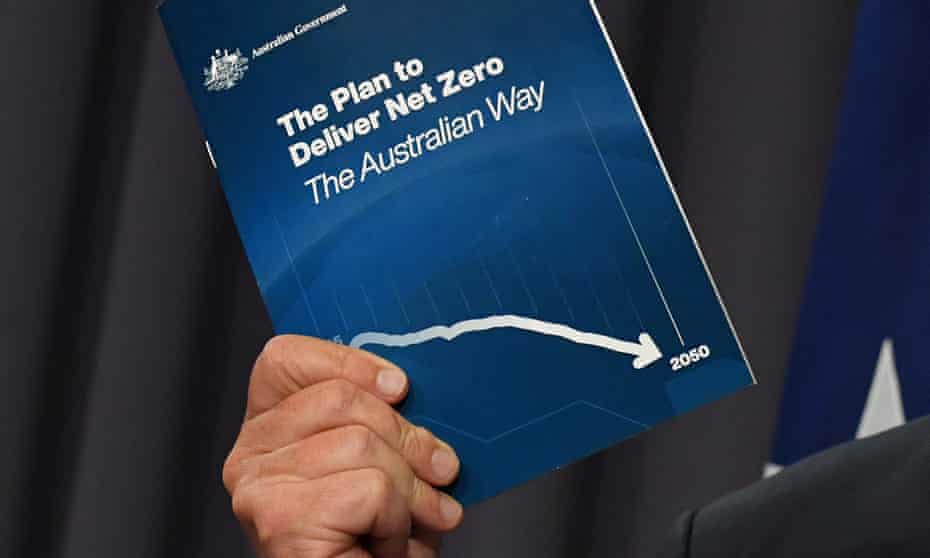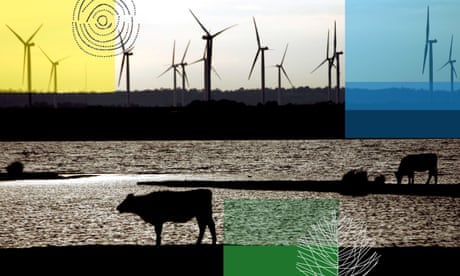Extract from The Guardian
I’ve seen the challenges of advocating credible climate policy in the face of fear, hate and hysteria. Future generations deserve far better

‘The singular purpose of Coalition climate policy has been electoral success.’
Last modified on Tue 2 Nov 2021 15.22 AEDT
If a week is a long time in politics, a decade can be an eternity of lost opportunity. Ten years ago this month parliament legislated a climate policy that worked effectively for the two years it operated. It included carbon pricing that cut greenhouse gases by forcing the biggest emitters to pay for their pollution. It was socially fair, offsetting any price impacts for low- and middle-income earners. It was environmentally effective. Despite the dire warnings, the economy and employment grew as emissions fell.
A decade down the track all that is in ruins. The only credible and effective climate policy Australia has had was repealed by Tony Abbott. Since then Coalition climate offerings have featured science denial, fear mongering, faux policy positions and disdain for global dialogue.
The singular purpose of Coalition climate policy has been electoral success. Confronted with the immense harm and risk posed by global warming, leaders in the Liberal and National parties have consistently subordinated Australia’s national interest, and the interests of future generations, to self-serving political chicanery.
The Morrison government’s verbal commitment to net zero emissions by 2050, while welcome, is in actuality little different. It merely responds to mounting global and domestic pressure but is backed by no credible policy. The idea of throwing taxpayers’ money at technology “winners” will send shudders down the spine of every rational economist.
Ten years ago, as Australia’s minister for climate change and the architect of the “carbon tax”, I frequently had to withstand verbal abuse and threats of physical assault whenever I stepped outside. On one occasion a shopkeeper was compelled to call the police while I was buying groceries. My partner experienced pressure at work because of her association with me. Abbott and his media cheer squad had whipped up such extreme fear, hate and hysteria.
So I know how hard it is to advocate credible climate policy. And I’ve seen how easily political bullshit artists backed by powerful media interests can succeed.
But no matter how hard the challenge, Australia desperately needs climate policy leadership of integrity. Governments have fallen, prime ministerships have been destroyed, economic opportunities have been squandered and public trust has been undermined. Our democracy has been damaged by the Coalition wielding climate policy as an incendiary political weapon. Future generations of Australians deserve better, far better.
There is nothing new about committing to net zero. Other countries have been doing that since the Paris conference in 2015. At the Glasgow conference Australia should be committing to a minimum emissions reduction target of 45% by 2030. Other nations, and even our state governments, have made such commitments. Failure to do so may lead to carbon taxes levied by our trading partners on Australian exports.
But Australia’s position can be turned around. There is cause for hope.
At home the government should be working on a package of transformational changes to the economy, to drive emissions reductions and seize economic opportunities. Carbon pricing may have been rendered politically too difficult but economic efficiency must be a guiding policy principle.
The world is on the cusp of a clean industrial revolution that Australia must harness. It will see the replacement of motor vehicles powered by internal combustion engines with electric vehicles.
Coal-fired electricity generation will rapidly be displaced by renewable energy and battery storage. Electricity transmission and distribution needs large capital investment to prepare for a renewable powered economy.
The demand for critical minerals needed for battery manufacturing will take off. Green hydrogen production will become an essential industrial capability. Manufacturing needs to apply technologies to decarbonise. Emissions-intensive industries like aluminium must convert to clean energy sources.
Huge energy efficiencies can be achieved in our built environment. Australian agriculture could benefit economically from carbon sequestration.
It’s all staring us in the face. Decarbonisation of the global economy presents immense economic opportunities for Australia. We have the resources and capabilities to grasp them. But it requires political leadership.
The failure to lead on climate action risks an indelible stain on the reputation of the Liberal and National parties. Scott Morrison faces a derisory legacy preserved on social media, after gleefully waving a lump of coal around in parliament.

It’s easy to discern that electoral politics is shifting in favour of climate action. Scientific warnings of extreme weather events are proving accurate. Businesses everywhere are making net zero commitments and calling for government action. Investors globally are placing pressure on company leadership to act.
Even our former Liberal finance minister Mathias Cormann, now running the OECD, has said: “Carbon prices and equivalent measures need to become significantly more stringent, and globally better coordinated, to properly reflect the cost of emissions to the planet.” I hope at least he blushed for a moment: as a senator he voted to repeal Australia’s carbon pricing mechanism, which was coordinated with carbon pricing in the EU.
Times are indeed changing. But we cannot afford another decade of lost opportunity.
No comments:
Post a Comment